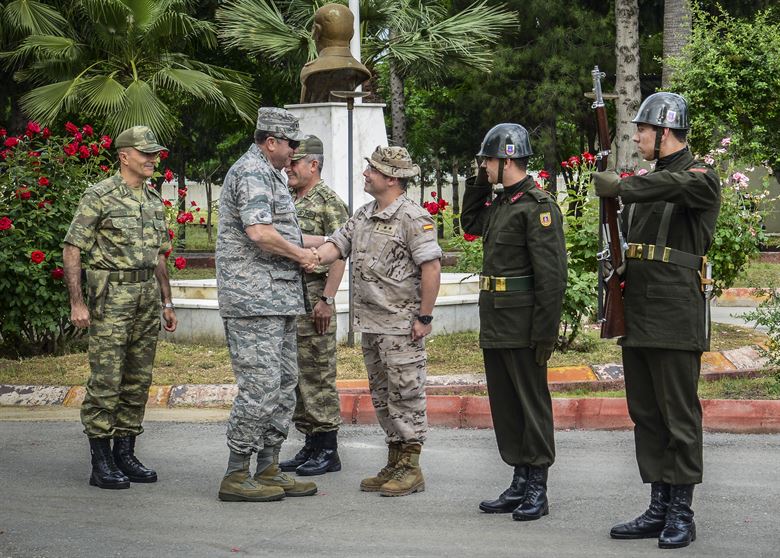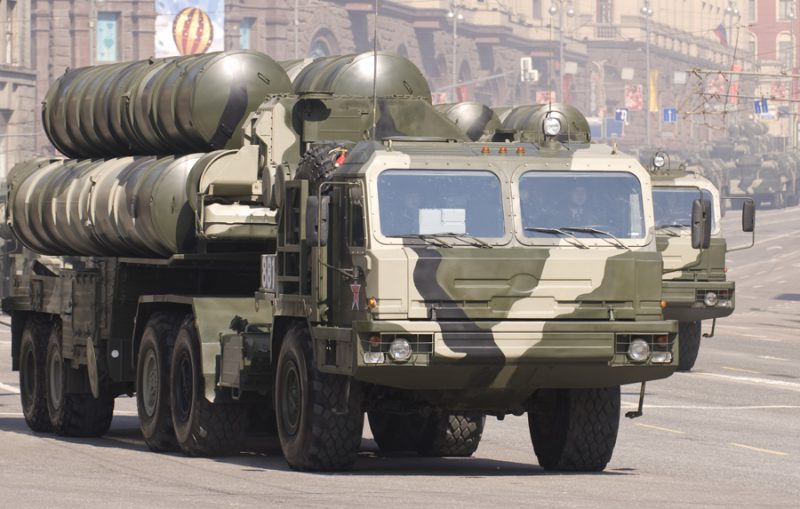Last week, the RAND Company, which has a budget of $350 million and is supported by the US government and the CIA, released a report on Turkey. The 243-page report, entitled “Turkey’s Nationalist Course: Implications for the US-Turkish Strategic Partnership and the US Army” was compiled by 10 different authors, including a former Naval Officer Stephen Larrabee. Larrabee is an analyst who knows a great deal about the AKP and the Turkish politics, as do his colleagues Graham Fuller and George Friedman: he has published many articles and research about Turkey in the past. Nonetheless, this report did not have a large public impact in Turkey for two reasons. The first is that the importance of the Atlantic system, or we can say the United States, in Turkish public opinion, has weakened significantly. The number of people who treat every report published in the United States about Turkey as a holy text grows less and less by the month. Second, as we move away from a unipolar world and toward a multipolar world, the Asian century has begun, and the entire framework of geopolitcs is being reassessed.
https://uwidata.com/7676-difficult-ally-or-eurasian-enemy-turkey-in-the-eyes-of-american-think-tanks/
TURKISH-AMERICAN RELATIONS IN THE SHADOW OF JULY 15
Aside from these two factors, we must also take note of some of the historical changes that have taken place over the past few years, including when FETO members in the Turkish military attacked Turkish civilians on the night of July 15, 2016, and the continued US support for PKK/PYD/YPG terrorism which results in new casualties every week. Today, the average person in Turkey knows that FETO was a mechanism of the United States government and that Washington is backing the PKK/PYD/YPG. In a country where even shopkeepers and taxi drivers are aware of this fact, it follows that the United States will not be able to serve as a reliable mediator or factor in the country’s decisions. On the other hand, despite these two clear threats to Turkey’s national security, the fact is that there are still some people who pioneer and defend the Pax Americana among our government servants, opposition and academics, which indicates the United States’ relative but continued success.
The opposition and the National Defense Ministry
The simplest and clearest response to this report was that of Retired General Nejat Eslen in his statement to VeryansinTV, where he called it “a plot in domestic politics and a Coup provocation for the Turkish Armed Forces (TAF).” In the RAND report, we can see that in an attempt to revive current US-Turkey relations, the opposition and the Ministry of National Defense (i.e. officer-to-officer relations) are being stressed as potential weak points. However, that ship has already sailed. The US can no longer initiate a coup in Turkey just because it wants one. On the other hand, the institutions aforementioned in the report should nonetheless be extremely careful. In our country, the opposition explores sees every avenue of coming to power as legitimate and valid. However, how moral and valid can the opposition be in Turkish public opinion when the force backing them protects FETO and spurs bloodshed throughout Anatolia by backing the PKK?
On the other hand, the institutions that suffered the most from the bloody July 15 coup attempt were the police and the Armed Forces. The Turkish Armed Forces (TAF) suffered from the Ergenekon and Sledgehammer conspiracy plots and then from the bloody FETO coup attempt, many losing their comrades-in-arms during the attacks. They have seen the fire and the betrayal. They have suffered alongside their families. The source of both of those vile attacks were FETO spies and militants within the TAF. Today, FETO’s leader is being hosted in the United States and the group’s fugitives are being given protection and asylum in almost every NATO country. Meanwhile, FETO trolls continue their social media attacks from abroad just as they did during the period of the plots. While this is personally painful, it has also led to the blossoming of a righteous opposition to the US and the West. As of today, even being associated with the United States, especially in the fields of politics, defense and security, creates an uncertainty and mistrust in Turkey.
For example, media reports about a US institution being a funder for Canal Istanbul has intensified skepticism and the mistrust for the project which was already faced with strong public disapproval. The last straw was RAND making the National Defense University (NDU) one of the focal centers of their proposed attack, calling to intervene in the institution’s curriculum… How dare they!? This report clearly shows that some factions in the United States still see, or want to see, Turkey as bon pour L’Orient. Every Turkish citizen has the right to expect that the Ministry of National Defense and its University be on alert to counter this arrogant approach.
The US has already lost Turkey
Let us be the first to tell the writers at RAND that they are going to have to find a new angle for their research on Turkey… some of their colleagues are already aware of that fact. For instance, lets see what Graham Fuller, who has been the CIA Station Chief in Turkey for many years and is FETO’s physical and spiritual father, has written on his website, in an article aptly titled “Who lost Turkey?”:
“No one in Washington has ‘lost’ Turkey, the process has been the product of a myriad new geopolitical forces. Turks furthermore find it demeaning to be regarded by Washington as a property to be ‘kept’ or ‘lost’, or to accept the assumption that Ankara’s default character should be as an American ‘ally’. It would be a grievous mistake to assume that when a new Turkish leadership emerges, that it will revert to the old status of ‘ally’ whose pliability the West had long relied upon. Any new leader at the outset may seek to mend a few fences here and there with the West, but will surely continue to pursue what Turkey sees as its expanded geopolitical destiny that includes deep engagement in Eurasia.”
There are quite a few ways we might answer Mr. Fuller’s question, but we cannot move on without assuring him that Washington has already lost Turkey. It was not the average American on the streets that destroyed relations with Turkey, it was Washington’s politics and the imperialist state which funded and supported FETO and the PKK. Now, let us move on. George Friedman, president of Stratfor, a think tank widely considered to be a shadow of the CIA, said the following in a speech at the “Digital Future” seminar held in Istanbul on November 28, 2019:
“Ten years ago, I wrote something absurd, which is that Turkey is emerging as a great power…. People said to me it is impossible, especially the Turks. But it is possible, and it is happening… Ten years ago, the idea that Turkey would sit at the same table with Russia, with the United States, with all of these countries and speak as an equal… This was not likely.”

Incirlik air base
Turkey, be confident!
Roughly 2 years ago on November 26, 2017, my article titled “Turkey, be confident. End the 70-year cycles” was published in the Aydinlik Newspaper. At that time I took note of two separate 70-year cycles from the Crimean War up to this day, the periods between 1853-1923 and 1946-2016. Both began with the intervention of the West for the protection of Turkey, and eventually ended up with the invasion attempts of our homeland by the very forces that had allegedly come to protect us. In between these two cycles, between the years 1923 and 1946, we saw a period of independence thanks to the geopolitical principles of Mustafa Kemal Ataturk. Today, we are at a new juncture. Asia has awakened, and Turkey is also awakening.
It is learning to shape the geopolitical fate of its own region in West Asia with its neighbors. The Foreign Ministry’s eastern turn, Turkish-Russian strategic cooperation, the Astana and Sochi Processes, the Turkish-Iranian convergence, the cooperation with Libya and Turkish-Chinese economic cooperation through the Belt and Road Initiative… these are the dynamics of the new era. Neither Turkey’s economy, nor its demographic strength nor its defense industry can be compared to the conditions of 1853 or 1947. As we break off from the second cycle, we must remember that our ancestors built empires in Anatolia, that we were the first nation to punch imperialism with the Revolutions of Foundation and the War of Independence.

Wikipedia
Moreover, we must keep in mind that our homeland has never been saved by anyone other than ourselves. The Turkish people have to be confident. Our future cannot be decided by a 243-page report, the Turkish people control their own destiny.

















Leave a Reply